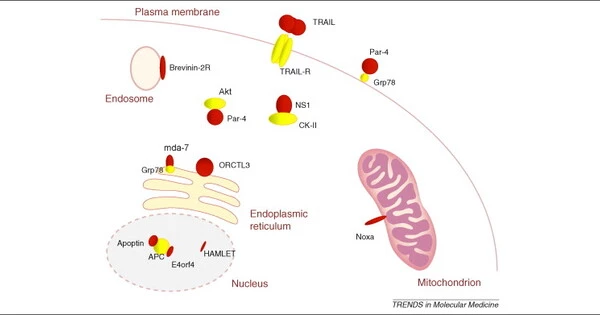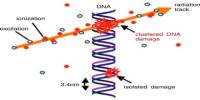The term “anticancer genes” typically refers to genes that play a role in the prevention or inhibition of cancer development and progression. When anticancer genes are expressed ectopically, they preferentially kill cancer cells while leaving normal healthy cells alone. This phenomenon is accomplished through a variety of processes, including apoptosis, apoptosis after a mitotic catastrophe, necrosis, and autophagy.
These genes frequently encode proteins that regulate a variety of cellular processes, including cell cycle control, DNA repair, apoptosis (programmed cell death), and immune response. In the late 1990s, extensive research in the field of cancer cells led to the identification of many anticancer genes such as ‘291 The human genome’.
Here are some key anticancer genes:
- TP53 (p53): The TP53 gene, also known as the “guardian of the genome,” produces the p53 protein, which is essential for regulating the cell cycle, DNA repair, and apoptosis. Mutations in TP53 are frequently linked to a variety of cancers.
- BRCA1 and BRCA2: Breast, ovarian, and other cancers are associated with mutations in these genes. Both genes are involved in DNA repair, which helps to keep the genome stable.
- PTEN: The PTEN gene codes for a protein that controls cell growth and division. PTEN mutations have been linked to a variety of cancers, including breast, prostate, and colon cancer.
- RB1 (Retinoblastoma): The RB1 gene produces a protein that aids in cell cycle control by inhibiting excessive cell growth. Mutations in the RB1 gene have been linked to retinoblastoma and other cancers.
- APC (Adenomatous Polyposis Coli): Mutations in the APC gene are commonly found in colorectal cancer. The APC protein plays a role in regulating cell adhesion and the Wnt signaling pathway.
- MSH2, MSH6, MLH1, PMS2 (Mismatch Repair Genes): These genes are involved in DNA mismatch repair, helping to correct errors that occur during DNA replication. Mutations in these genes can lead to a condition called Lynch syndrome, which is associated with an increased risk of colorectal and other cancers.
- CDKN2A (p16): The CDKN2A gene codes for the p16 protein, which aids in cell cycle regulation by inhibiting cyclin-dependent kinases. CDKN2A mutations are linked to an increased risk of melanoma and pancreatic cancer.
Deregulation of these genes due to base substitutions resulting in insertions, deletions, or changes in missense amino acids can cause frameshifts, causing the protein to change. A change in gene copy number or rearrangements is also required for these genes to be deregulated. Cancer may develop if these anticancer genes are lost or altered due to mutations or rearrangements.
















